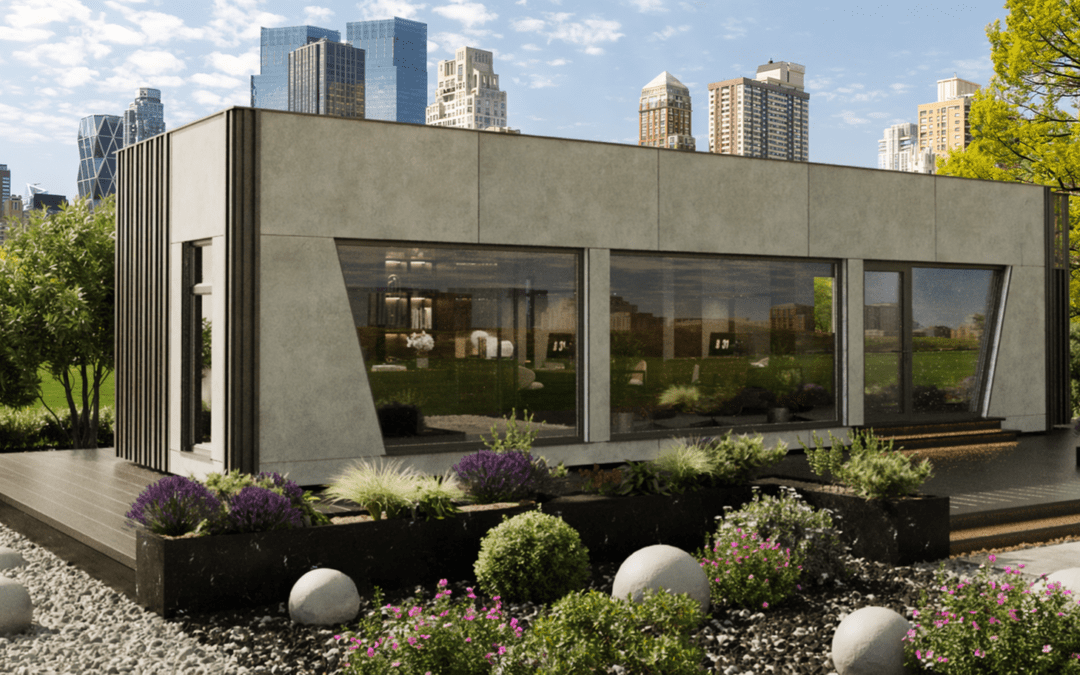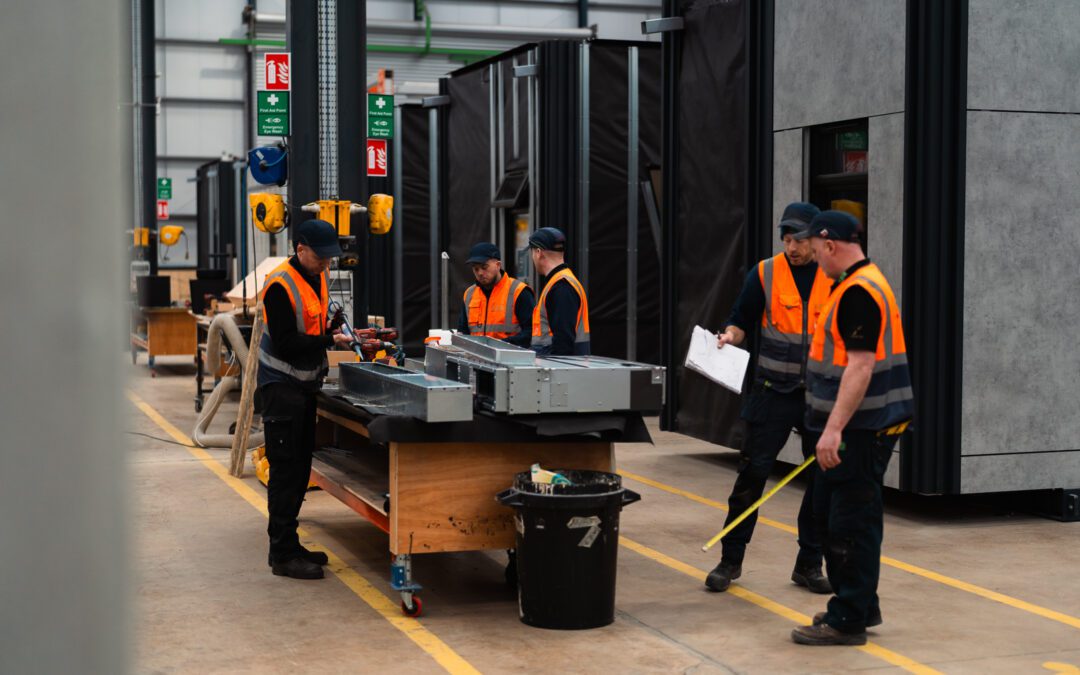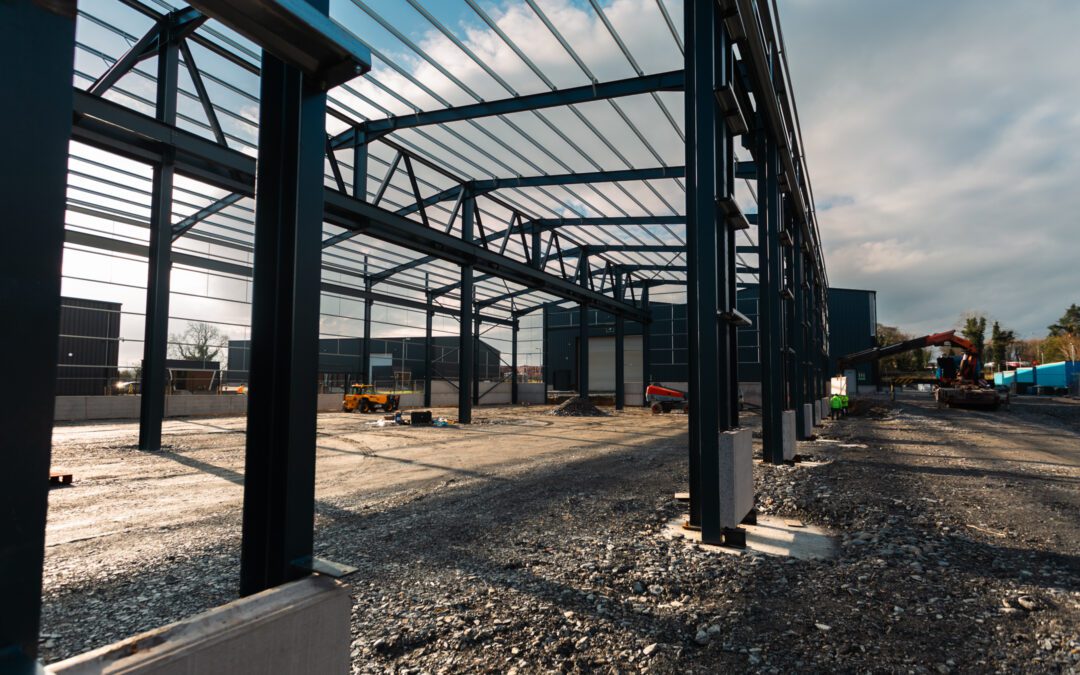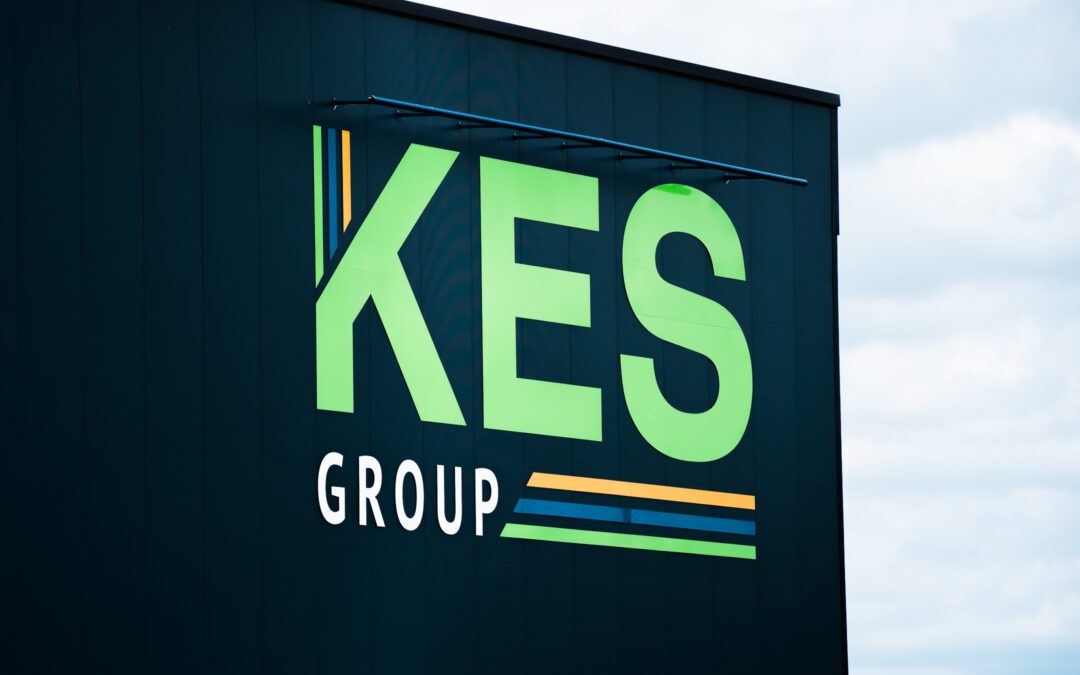Sustainability in Modular Construction
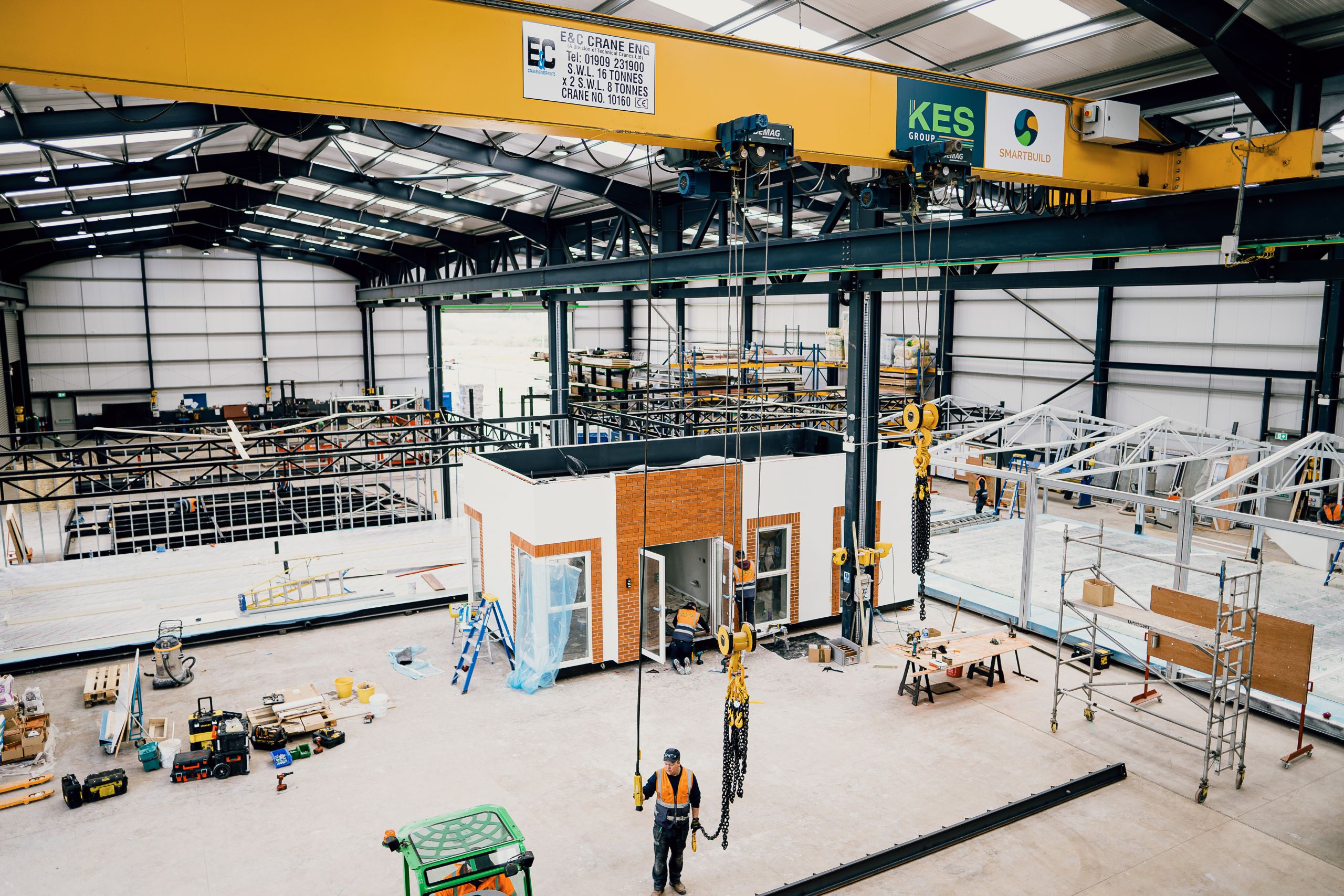
Sustainability in Modular Construction is a hot topic right now. Modular construction is slowly but surely changing the way that we will live. Over the next few decades, modular construction may well become the go-to method for many home builders. With the UK set bring all greenhouse gas emissions to net zero by 2050, sustainability is a priority. It has become an indispensable consideration in the way in which we build housing. Modular construction techniques have the potential to revolutionise sustainable construction. This is a sector that is predicted to grow to a multi-million-pound industry, all the while creating jobs in a controlled environment.
There is no doubt the interest in modular construction has increased over recent years, but what’s driving this shift? Prices have skyrocketed in the traditional building sector and sustainability goals become more urgent. There are many benefits of the modular approach, which are also critical in meeting ambitious green goals. Let’s examine how modular construction can help us achieve these goals:
Changing Attitudes
Modular construction has come a long way from the homes that rolled off the production line in the mid-20th century. People’s attitudes have changed in over the years. This attitudinal change has allowed us to realise modular constructions’ true potential. Modular construction is capable of producing high-end results, and this has ignited interest in modular as a critical driver of sustainable construction.
Each project is quality controlled in an offsite location. Projects are constructed to higher sustainability standards than a traditional build. Not alone this, but modular reduces time frames and overall costs. As well as being kind to the environment, monetary value is a major advantage.
Value for Money and Sustainability
The demand for high-quality housing that will stand the test of time is at an all-time high. Many people wonder, is this truly something modular construction can deliver?
Modular construction may well be the way to meet the housing shortage and ambitious targets for net zero by 2050.
Many equate sustainability with higher costs; however, this is not the case when it comes to modular construction. These energy-efficient buildings are better insulated than their traditional counterparts. This represents a drastic energy bill saving. Factory-controlled working environment means that waste and disruption are reduced. The entire project is entirely recyclable. When compared with traditional construction methods, modular delivers sustainability and value for money.
Controlled Environment
Reducing the impact of a construction project is something we feel very passionate about. Modular addresses many of the issues that make traditional construction sites so unsustainable. For example, modular construction can reduce noise and pollution impacts on the neighboring community. The reduction in wastage is a major advantage in comparison with traditional construction. Considering the fact that renovation and construction waste accounts for a huge percentage of landfills, modular buildings reduce this significantly. This is a huge plus for an eco-conscious society.
While the UK has been reluctant to embrace the technique, the Government’s enthusiasm and goals are accelerating its growth. Modular housing is a potential solution to an eco-friendlier society.
KES Group has an impressive portfolio of modular construction with clients in many different sectors. If you’d like to learn more, talk to a member of our team.
We will take care of the installation of your internal and external fixtures and fittings. Our skilled craftsmen are highly experienced in all aspects of joinery, from cabinetry and flooring to door and window frames. We use only the finest materials and the latest techniques to ensure that your joinery is durable, functional, and aesthetically pleasing.
In addition to our joinery services, we also offer a full range of external and internal fitting services. This includes the installation of windows, doors, lighting fixtures, plumbing fixtures, electrical fixtures, and more. Our team will work closely with you to ensure that your fixtures and fittings are installed to your exact specifications, and that they are fully functional and safe.
At KES Group, we take pride in our commitment to delivering the highest quality workmanship and customer service. From the initial consultation to the final walk-through, we will be there to guide you every step of the way. Whether you are a homeowner, a business owner, or a contractor, you can count on us to bring your project to life and to make sure that your experience is stress-free and enjoyable. So why wait? Contact us today to learn more about how we can help with your project.
At KES, we understand that construction projects can be a daunting task for any property owner or developer. This is why we offer full project management services to make sure your SMARTBUILD project runs smoothly from start to finish. Our team of experts will oversee every aspect of the construction process, ensuring that everything is done according to your specifications and requirements.
One of the key services that we offer is the delivery and crane installation of your SMARTBUILD. Our team of experienced technicians will transport your SMARTBUILD to the site, ensuring that it arrives in perfect condition. Once on site, our crane operators will carefully lift the structure into position, ensuring that it is perfectly aligned and securely fastened.
The installation process is carried out by our experienced team of technicians who have been trained to handle all aspects of construction. They are equipped with the latest tools and technologies to ensure that your SMARTBUILD is installed quickly and efficiently, minimizing any disruptions to your daily operations.
At KES, we take pride in our ability to deliver outstanding construction services, and our project management services are no exception. We understand that time is of the essence, and that is why we work hard to ensure that your SMARTBUILD project is completed on time, within budget, and to the highest standards of quality.
So if you're looking for a company that can help you with the construction, delivery and crane installation of your project, look no further than KES. Contact us today to learn more about our project management services and how we can help you bring your vision to life.
We take pride in our market-leading design team, who are dedicated to providing each of our clients with a personalised and bespoke design solution. Our team of experts applies their extensive knowledge and creative expertise to bring your vision to life, delivering a customised design that reflects your unique needs and requirements.
Whether you’re looking to build a new home or develop a commercial project, our design team is equipped with the tools and skills to make your vision a reality. With years of experience in the industry, they understand the importance of creating a design that not only looks great, but is also functional, cost-effective and meets all your requirements.
When you work with our design team, you can expect a high level of communication and collaboration from start to finish. They listen closely to your ideas, provide guidance and suggestions to help bring your project to life, and work closely with our engineering and construction teams to ensure that your design is executed to the highest standards.
We believe that your design should be a reflection of your unique personality and style, and we strive to provide you with a bespoke solution that truly captures your vision. Our goal is to create a design that not only meets your practical needs, but also exceeds your expectations in terms of style, creativity and functionality.
We believe in delivering quality, and our design team is at the forefront of this commitment. If you’re looking for a company that truly cares about your project and delivers a bespoke design solution, look no further. Contact us today to learn more about our services and how our design team can help bring your vision to life.
At KES, we understand that every project is unique and requires a tailored approach. That's why our team of experts takes the time to build an in-depth understanding of our client's project requirements, challenges, and constraints. By carefully considering each aspect of the project, we can ensure that the final outcome meets the client's expectations.
Our experts have years of experience in the industry and are equipped with the knowledge and expertise needed to handle even the most complex projects. They listen closely to the client's goals, needs, and vision for the project and work closely with them to develop a plan of action.
One of our key strengths is our ability to propose innovative solutions that address the client's specific challenges and constraints. We understand that every project is unique and requires a different approach, and our experts are dedicated to delivering the best possible results for each and every client.
Our commitment to delivering high-quality results and exceptional customer service has earned us a reputation for excellence in the industry. We take pride in our work and are dedicated to ensuring that each project is completed on time, within budget, and to the highest standards of quality.
So if you're looking for a company that will take the time to understand your project requirements, challenges, and constraints and provide you with innovative solutions, look no further than our team of experts. We're here to help you bring your dreams to life.


